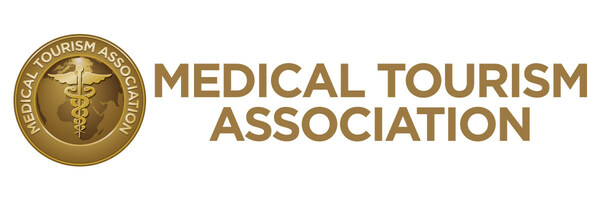Medical Tourism Patient Survey 2024 Shares Deep Insights into Barriers to Patient Acquisition
 |
WEST PALM BEACH, Fla., Feb. 13, 2024 /PRNewswire/ -- The Medical Tourism Association (MTA) has recently released the Medical Tourism Patient Survey 2024, which provides invaluable insights into the motivations behind healthcare consumers' medical travel decisions and the barriers to patient inflow for medical tourism organizations. This Patient Survey was developed in collaboration with the International Healthcare Research Center (IHRC), a 501c (3) non-profit organization that collects and publishes comprehensive data on global healthcare management and delivery.
The Report serves as a blueprint for medical tourism facilitators and organizations around the world, sharing insights into key drivers of inbound medical travel and clear strategies to meet evolving needs and expectations of patients globally. The Survey results offer critical insights into health consumer choice, barriers to patient acquisition, and strategies for patient conversation and profit optimization.
The Medical Tourism Patient Survey reveals what underpins patients' healthcare behavior globally – trust. Almost all respondents who travelled for medical treatment (97.2%) considered trust to be one of the most critical pull factors. For patients and health consumers, trust comprises transparency, clear communication about treatment costs and other charges, communication about their treatment, credentials of healthcare professionals involved in their care, and a concrete medical plan when things do not go as expected.
"Addressing the pain points and concerns of medical tourists should be the primary focus for providers looking to expand their international patient programs. Without a deep understanding of patients' needs and decision-making processes, providers risk losing market share. This survey serves as a crucial tool for providers to refine their approach to lead acquisition and foster growth. By building a more effective process and bolstering trust and credibility, providers will see more success," says President of MTA, Jonathan Edelheit.
Respondents also emphasized the critical role of accreditation – a key driver of trust — in the medical travel decision process, as more than two-thirds of the respondents identified accreditation as an important metric for medical travel programs. Accreditation not only demonstrates a provider's commitment to quality and a world-class patient experience, but also indicates a commitment to global best healthcare practices.
The report further highlights major barriers to patient conversions for many medical tourism organizations. Respondents who did not make the move to receive treatment abroad said that the most significant factors that swayed them were hidden costs, concerns about potential complications, and a poorly coordinated post-treatment period.
Additionally, Respondents expressed concerns about their travel plans, including delayed provider response time, lack of communication, and inefficient payment methods, as factors that swayed them from traveling for medical care.
The Report offers various insights into addressing these concerns to boost patient conversion and takes a deep dive into the subtle challenges or limitations in the providers' offerings that limit inbound travel. Examine your medical tourism program and services from the consumer perspective and learn what stands in the way of patient conversion for your organization.
Key Highlights from the Survey
- Trust in Medical Tourism: 97.2% of medical tourists place immense importance on 'trust' in their healthcare provider, influencing their decision-making process.
- Role of Accreditation: 63.3% of respondents said accreditation influenced their decision to choose their provider.
- Financial Concerns and Transparency: 57.7% expressed concerns about international payments, showing the pivotal role of cost transparency and secure payment options in medical tourism.
- Competitive factors: Learn why consumers chose a competing healthcare provider or facilitator.
- Barriers to Medical Tourism: Explore the various factors that lead patients to opt out of medical tourism, delving into the challenges or limitations in the offerings of providers that contribute to this decision. This includes considerations like financial concerns, trust issues, and perceptions of quality and safety.
- Patient leads and Conversion to Revenue: Learn how to increase your appeal, optimize your medical tourism program, and grow it.
To download the comprehensive 31-page survey report, please click here.
About the Medical Tourism Association (MTA)
The Medical Tourism Association (MTA) is a non-profit organization dedicated to breaking down the barriers to affordable, transparent, and world-class healthcare. Founded in 2007, the MTA continues to raise awareness for medical travel while driving the adoption of best practices in the industry. The MTA has launched leading brands in the industry, such as South Korea, Dubai, Washington DC, the State of Florida, and Abu Dhabi. They work with Governments, Healthcare Providers, Insurers, and other stakeholders from the conceptualization of their project to launch and throughout the commercialization.
About the International Healthcare Research Center
The International Healthcare Research Center is a 501c (3) non-profit organization created to gather global healthcare and wellness data to provide actionable insights to stakeholders worldwide, including travelling health and wellness seekers, governments, insurance carriers, healthcare and hospitality providers.
The IHRC has launched many projects and research activities in the field of medical travel.. One critical project co-developed by the IHRC and Global Healthcare Resources is the Medical Tourism Index (MTI), a crucial tool for medical tourism organizations and other stakeholders to assess medical tourism destinations against global standards and the quality of their medical travel industry. To learn more about the MTI, click here.